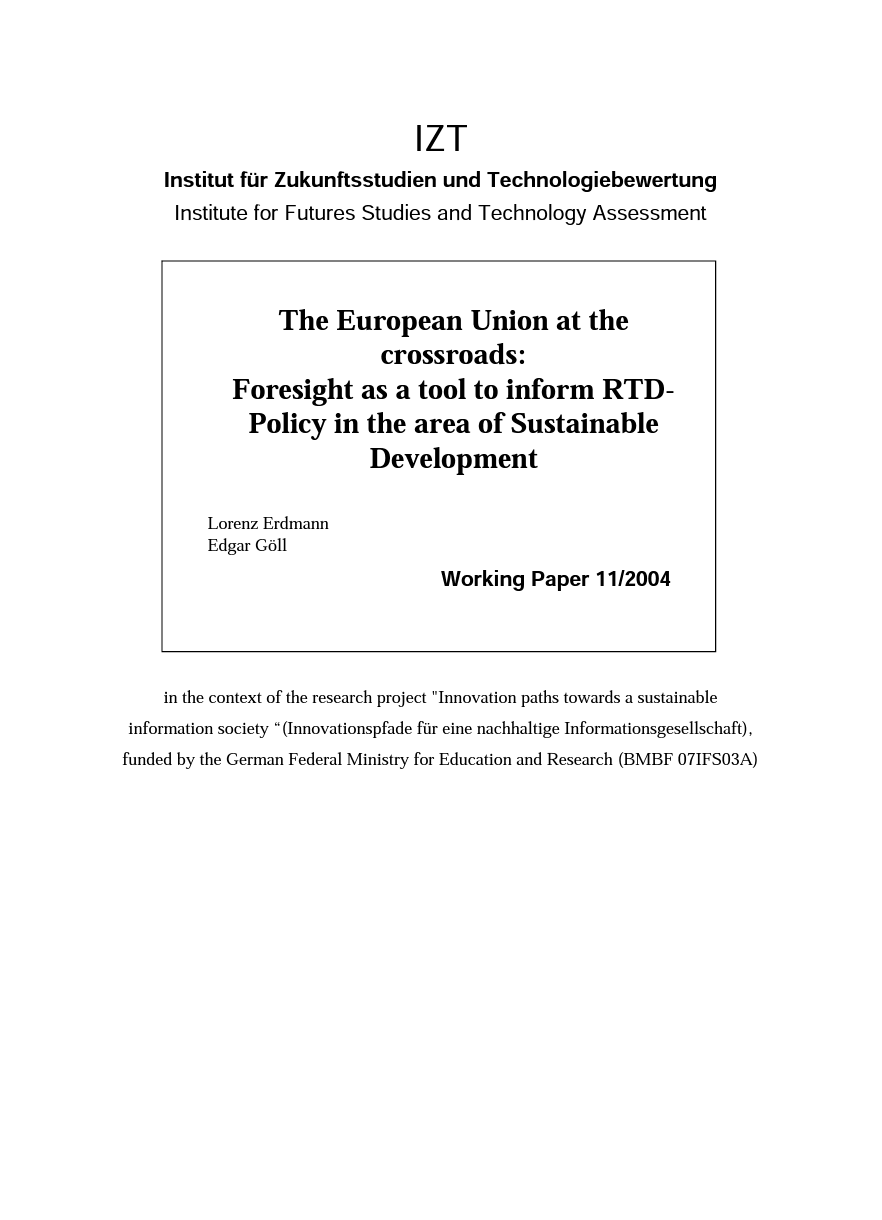The European Union at the crossroads
Abstract
The science/public/policy relationship is subject to deep changes. Taking these changes as a starting point, the following paper examines the changing foresight landscape in the European Union, both from an institutional and from a methodological perspective. The necessity for a reorganisation of these foresight activities is -among other factors- due to the limited impact of current foresight to inform RTD policy1 in the area of sustainable development. Thus, the paper identifies four key challenges in the use of foresight tools and techniques for sustainable development in EU RTD: 1. Increasing the impact of Foresight on RTD policy. Foresight techniques in the past have had a limited positive effect on RTD policy in the EU, in part through poor design and understanding of how the outcomes of foresight techniques can be used. 2. 3. 4 From technology bias to serving the over-arching goal of sustainable development. RTD policy has arguably been focused too heavily on technology and has tended to ignore the wider social and economic goals that technological development is "designed" to serve. The European Commission has set sustainable development as the central objective of all sectors and policies. Developing adequate methodologies. Sustainable development is a complex concept and requires foresight methodologies that are capable of integrating a large number of factors. However, foresight techniques for RTD have tended to take a reductivist approach that ignores the full range of impacts. Needed is an adequate form of "reduction of complexity". Practical conduct of foresight activities. The current foresight system faces severe difficulties in making practical use of the vast amounts of knowledge available. The involvement and co-ordination of many different stakeholders with limited resources in terms of time, money and personnel is a difficult task and a major challenge.
